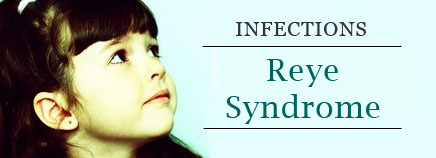
Reye syndrome is an extremely rare but serious illness that can affect the brain and liver. It’s most common in kids who are recovering from a viral infection.
Reye syndrome is named after Australian pathologist R. Douglas Reye, who first reported it in 1963. It’s still not well understood, but studies have linked it to the use of aspirin (salicylates) or aspirin products during viral disease.
The number of cases has dropped dramatically since this link was discovered and doctors started advising against giving aspirin to kids and teens, especially during viral illnesses.
About Reye Syndrome
Reye syndrome most often affects kids 4 to 14 years old. Most cases happen when viral diseases are epidemic, such as during the winter months or after an outbreak of chickenpox or the flu.
Symptoms can be so mild that they go unnoticed. In rare cases, though, Reye syndrome can cause death within hours. Because it is a potentially life-threatening disorder, Reye syndrome should be treated as a medical emergency.
Early detection and treatment are critical — the chances for a successful recovery are greater when Reye syndrome is treated in its earliest stages.
Signs and Symptoms
The signs and symptoms of Reye syndrome almost always follow the start of a viral illness, such as an upper respiratory tract infection (a cold, the flu, etc.), a diarrheal illness, or chickenpox. Many cases are mild and may even go undetected; others can be severe and need aggressive care.
Reye syndrome can start from 1 day to 2 weeks after a viral infection. The viral illnesses that lead to it are contagious, but the syndrome itself is not.
Symptoms include:
- frequent vomiting
- tiredness or sleepiness
- in babies, diarrhea and rapid breathing
- irritability or aggressive behavior
Other symptoms include changes in vision, difficulty hearing, and abnormal speech. In the later stages, a child may behave irrationally; be confused; or have severe muscle weakness, seizures, and loss of consciousness. There usually is no fever.
Reye syndrome is now very rare, and only a few cases a year are reported in the United States. It should be considered, though, if a child is vomiting a lot or shows a change in mental status or behavior, particularly after a recent viral illness.
Prevention
Aspirin and other drugs from the salicylate family should never be used to treat chickenpox, the flu, or any other viral diseases. Many over-the-counter (OTC) medications contain salicylates, so be sure to read the labels and talk to your health care provider if you’re not sure whether a medication is safe for your child.
In general, aspirin (salicylates) should not be used for kids or teenagers except on the advice of a doctor for certain conditions.
Treatment
Children with Reye syndrome are usually treated in a hospital. Those who are seriously ill will be cared for in the intensive care unit (ICU).
Treatment is supportive, as there is no cure. The clinical care team will make sure the child stays hydrated and maintains electrolyte balance, and they’ll monitor nutrition intake and cardiorespiratory status. Chances of recovery are greatest when these key systems are as balanced as possible. Tests that might be done include blood tests to monitor electrolytes and liver function and an imaging study of the brain (CAT scan or MRI).
Mechanical ventilation (a breathing machine or respirator) might be necessary if breathing becomes too slow or ineffective. Intracranial pressure (pressure of the fluid within the brain) and blood pressure might be monitored. A child also might receive small quantities of insulin to increase glucose metabolism, corticosteroids to reduce brain swelling, and diuretics to get rid of excess fluid. If a child has seizures, they’ll be treated with medicines.
The outlook for children with Reye syndrome has improved. Thanks to earlier diagnosis and better treatment, the survival rate has risen to about 80%. The earlier the condition is detected, the better the chances for survival. Children who progress to the late stages of the syndrome may suffer brain damage and disability.
When to Call the Doctor
If your child is vomiting, has behavioral changes, or is extremely sleepy, especially after a viral illness such as the flu or a cold, call your doctor or get medical help right away.
Of course, many kids with viruses will have some of these symptoms, and most will not have Reye syndrome. Nevertheless, it is best to be sure, as early detection is the key to successful treatment of Reye syndrome.

